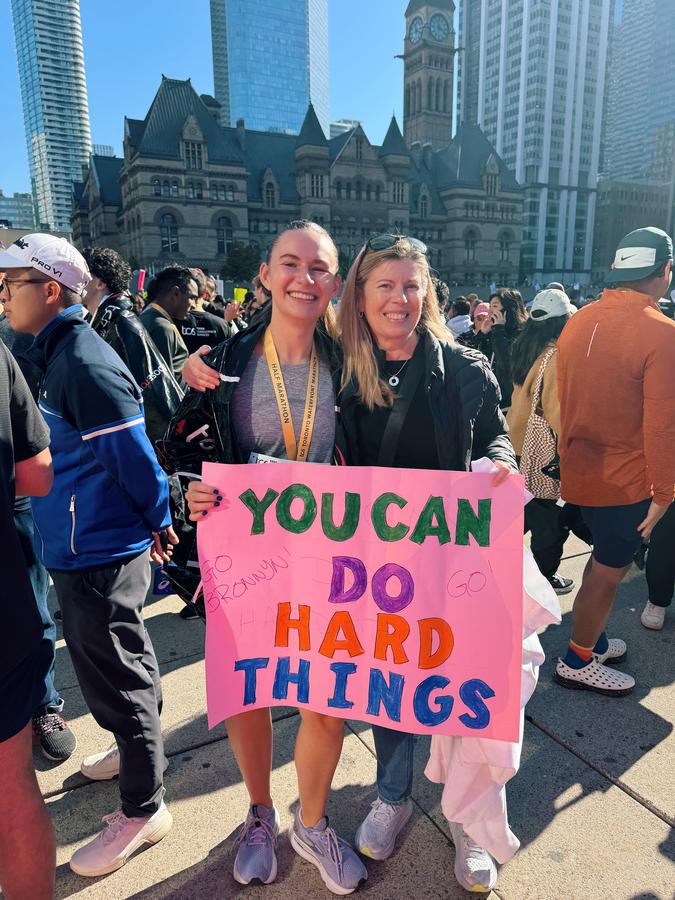
Dr. Stephanie Waitt
Sept. 22, 2017, 8:02 p.m.

I could use my work with individual clients to share how complex and overwhelming an eating disorder can be, but I want to protect their stories, so I am going to share my story and how being fit is not always is so fabulous.
My obsession with working out and eating healthy started very innocently. It began as an attempt to save money from eating out all the time. I was perceived by others as “healthy” because I was “disciplined” and “focused.” People admired my motivation to make it to the gym and the dedication to my diet. What people did not see was that I was lonely and stressed. I was living away from my family and friends in a town I did not know.
At this time in my life I was working my first “big girl job” as a therapist for sexually abused children. Despite all my training and education, I was not emotionally and mentally prepared for this job. I spent many nights sad, depressed, lonely, and confused, and no one ever saw this. I went to work and was my bubbly and outgoing self, but when I was home alone, I was forced to face my demons. I didn’t feel like I could talk to anyone, because no one would understand, and who wants to hear about the hard stuff I listened to every day. I felt like I was a burden to my friends and families so I kept it all inside – I kept it all a secret.
What most people do not understand about eating disorders is that they are not just about a desire to lose weight. It is not as simple as “just eating something”. It is my belief that eating disorders are so complex 1) because they are a way of coping, 2) because they (and you) are rewarded, 3) because dieting is praised, and 4) because there are a lot of misleading myths about them.
Let me explain.
1. Disordered Eating as a Coping Skill
An ED becomes a way to cope with upset and this is one of the reasons an eating disorder is a serious and complex issue. There are some very intense and overwhelming emotions – life is really hard and things can suck. For me, I was coping with feeling lonely and inadequate by obsessing over working out and healthy eating. I felt hopeless and powerless. But though I felt I could not change my situation, I did know that I was able to change my body. I was able to think about ways to diet and workout, and this was better than dealing with the emotions I was really feeling.
Is exercise good? Yep! Do I encourage people to eat foods that nourish the body? Yep! The important thing to recognize, however, is that using exercise and healthy eating as a way to deal with and avoid feelings is NOT healthy. I had to make a change in my life, but because I was too focused on working out and eating “right”, I was not able to recognize that I needed to change. Instead of coping with my feelings, I was avoiding them.
Recovery from an Eating Disorder involves learning how to cope with intense feelings. For whatever reason, you may believe that you are not allowed to feel the way you do or that your feelings are bad or wrong. Recovery focuses on learning how to voice your needs and communicate with others so they can help you meet those needs. Learning how to deal with intense emotions in a helpful, healthy and productive way is key.
2. Disordered Eating is rewarded
Using disordered eating to cope with upset emotions, unfortunately, works! That being said, though it is a form of coping, it is MALADAPTIVE – it is not productive, effective, or beneficial to your long-term mental health and well-being. It is not ADAPTIVE.
When you get stressed, you find ways to not be stressed anymore. Things like prayer, getting support, problem solving, and positive thinking can help reduce stress in a rather positive and beneficial way. But there are also things like distraction, denial, substance use, blame, and eating disorder behaviors which, while reducing stress, also cause more mental, physical, and emotional harm. Sure the ED behaviors allow you to not feel so emotionally overwhelmed but you continue to experience upset and the cycle of harm continues.
In order to recover from any eating disorder it is important to recognize the resources available that empower you. You do a lot of positive and important things each day but your ED may prevent you from recognizing these things. As you recover and acquire support from more and more external sources, you will see that you have evidence for other types of praise.
3. Dieting Is Praised!
I was praised for my dedication to my diet and working out lifestyle. People made lots of comments - I felt uncomfortable and as though I needed to continue what I was doing. I was too worried about what would happen if I stopped. I worried about who I would become if I lost this part of me. And, unfortunately, I was afraid of how I’d be perceived by my peers and those who admired my ethic if I changed it.
I was stuck and sick for a long time because my lifestyle was socially accepted and praised. And that’s the thing about eating disorders, spectators do not see how difficult life really is when you have an eating disorder.
You want to surround yourself with people that “get it”. You want people who understand eating disorders, who refrain from dieting and who don't believe in body shaming in your corner. You want these folks supporting you and encouraging you. When I was able to overcome my ED, the friends that praised me were still my friends. They loved me. They support me. They think I am fabulous just as I am today.
4. What You Hear About Eating Disorders Is Not True
There are so many misconceptions about eating disorders. “I eat, therefore I don’t have an eating disorder.” “I am not thin, therefore I don’t have an eating disorder.” “I am healthy, therefore I do not have an eating disorder.” “I am too old to have an eating disorder.”
Learning the truth about eating disorders is how you overcome them. There are lots of therapists and treatment centers doing amazing work helping individuals learn to love self just as they are today. You can be healthy as you are right now, you don’t need to change anything to be happy and healthy. However, if you want to make a change and feel happy and more confident there is a lot of help available. It does not have to be too late to get help.
Eating disorders are treatable. People recover and overcome every single day. I have seen individuals learn to respect and love their bodies, and gain confidence and happiness. The desire to be thin becomes a prison but there is freedom from body shame and anxiety over food. If you are struggling, or have a loved one struggling, you can take the first step toward freedom and get some support. It is possible to be fabulous and free from disordered eating.
Dr. Stephanie Waitt specializes in treating eating disorder at her practice, Texoma Specialty Counseling. In her work with people she aims to help clients find balance, peace, confidence, and happiness with their bodies, relationships, and life. She emphasizes the importance of self-care and how being a little selfish is a really good thing. Stephanie is also an online recovery coach where she helps people learn to find peace with their bodies and ditch dieting. She helps people find confidence and the power within them to live the life they want right now! You can learn more about her practice and online recovery coaching at www.texomaspecialtycounseling.com. She offers you a free 7-Day Confidence Building Challenge here.

July 9, 2025, 3:47 p.m.

May 22, 2024, 12:40 a.m.